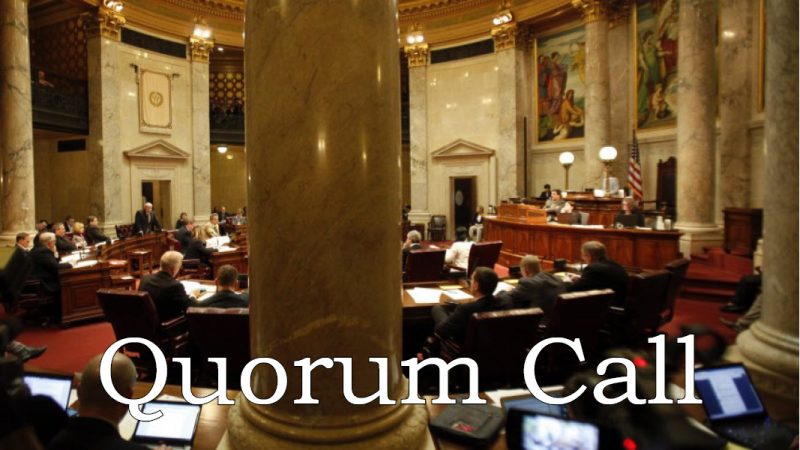The governor would be prohibited from filling vacancies in constitutional offices without a special election or Senate approval, and judicial candidates who turn 75 after Election Day would be barred from taking office under another pair of bills the Assembly passed today.
AB 476 was approved by voice vote, which would block the governor from filling vacancies without Senate confirmation or special election for secretary of state, treasurer, attorney general and state superintendent. The measure now heads to the Senate for consideration.
Gov. Tony Evers drew GOP backlash in March after he appointed former State Treasurer Sarah Godlewski as secretary of state upon the resignation of longtime Secretary of State Doug La Follette. The change came after La Follette was elected to a 12th term last November.
Rep. Lisa Subeck, D-Madison, said the bill is another measure “about politics and nothing else.”
>> WisPolitics is now on the State Affairs network. Get custom keyword notifications, bill tracking and all WisPolitics content. Get the app or access via desktop.
She argued the measure is a “political statement” that could result in “leaving us in a very dangerous position if this bill were to pass and become law.
Subeck noted a provision in the bill that would require a vacancy after Jan. 1 of an election year for the office to be filled by nomination of the governor and with the advice and consent of the Senate could lead to a drawn-out vacancy in a given office.
“So we know we could go anywhere from three to 11 months, maybe somewhere in between depending on the exact timing of that special election, without these positions being filled,” she said.
Rep. Gae Magnafici called the bill a “crucial piece of legislation,” highlighting La Follette’s resignation a few months into his most recent term. She argued there are “competent people” who could fill vacancies leading up to a special election.
It’s about strengthening the very core of our democracy. It’s about every key position in our government is filled by individuals who have been chosen by you and not through backdoor appointment,” the Dresser Republican said.
The Assembly also passed AB 552 53-44, with nine Republicans joining all Dems, which would block anyone 75 or older from being elected or appointed judge or justice.
Rep. Ron Tusler, R-Harrison, ripped the age limit, which he called “arbitrary” after noting former U.S. Chief Justice William Rehnquist, of Shorewood, served until his death at the age of 80.
“Our judges every day are asked to make the most complicated, the most emotional, most difficult decisions they can possibly be asked,” he said, adding those in districts with judges over the age of 75 should be worried about the impact on the judicial system in their areas.
Author Rep. Nik Rettinger, R-Mukwonago, argued the bill allows the torch to be passed to younger generations. He said over 30 states have similar age limits for electing judicial candidates.
“Keep in mind this is not an automatic retirement and certainly provides a glide path for someone who turns 75 while currently in their term, they continue to serve that out,” he said.



